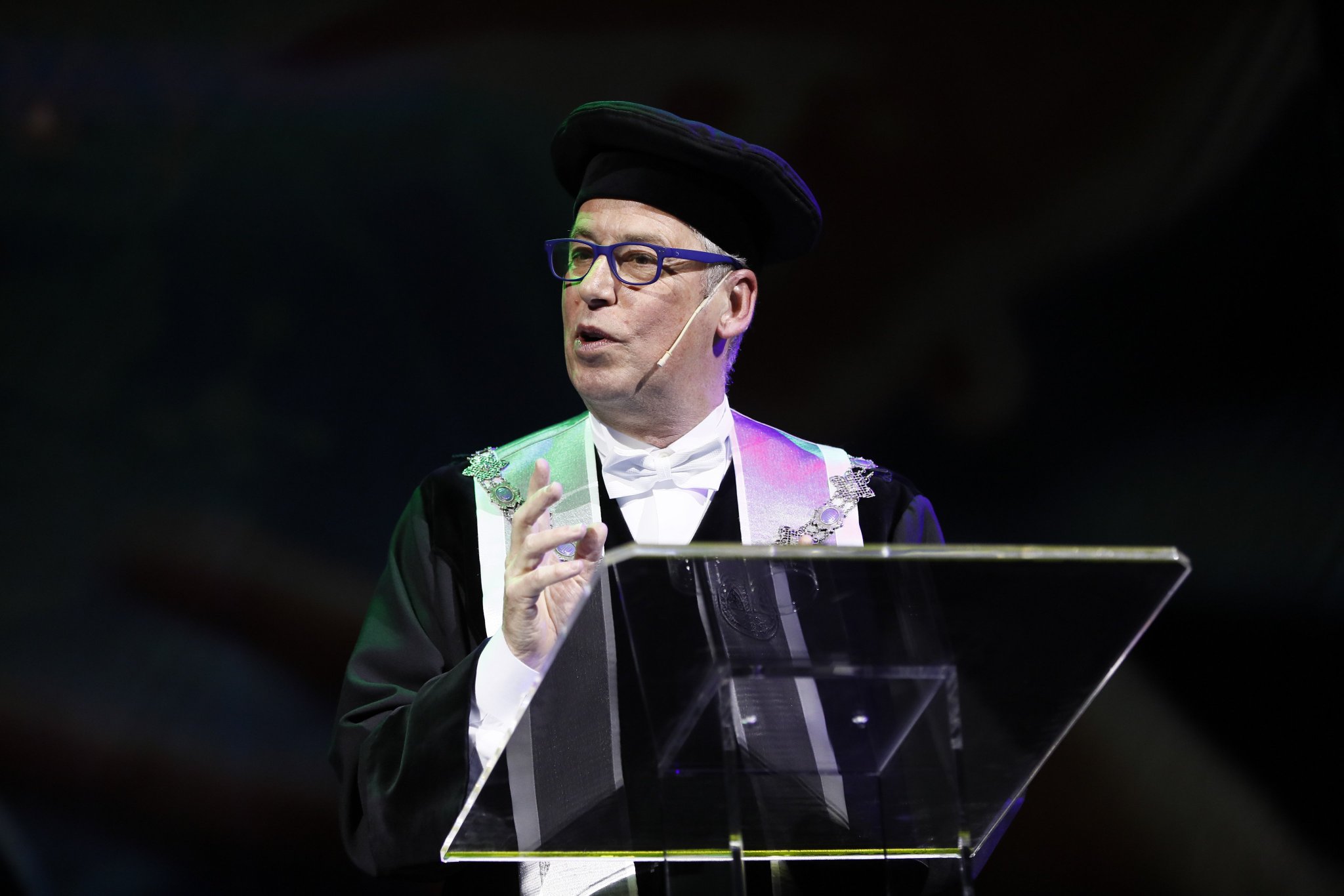The growing TU Delft-Erasmus University collaboration revolves around a new Health Technology Campus in Rotterdam. The campus will cost half a billion euros in 10 years.
Rector Tim van der Hagen announced the deepened collaboration with Erasmus University during the Dies. (Photo: TU Delft)
TU Delft, Erasmus MC and Erasmus University are planning to work together seamlessly in health care, artificial intelligence and a sustainable living environment. Rector Magnificus Tim van der Hagen named this the ‘Convergence’ and revealed the intention in his Dies Natalis lecture on Friday 10 January.
Last Saturday the NRC newspaper wrote: ‘As part of the collaboration, at least one new campus will be built close to Erasmus MC, plus another 30 laboratories to be used for artificial intelligence. Over the next 10 years, the institutes will jointly reserve half a billion euros for this. They are pinning their hopes on the Government and the private sector for funding.’
The collaboration has had
a long build up
The collaboration did not just drop out of the blue. It emerged from the LDE alliance (Leiden-Delft-Erasmus) which was established in 2013 to advance collaboration in the field of medical technology. Strikingly, Leiden University is not involved in the new Health Technology Campus. During his address, Van der Hagen said that he is “convinced that Leiden University will join soon”.
To the question of why Leiden University is not involved now, TU Delft spokesperson Karen Collet said that researchers at Erasmus MC and TU Delft work well together and know what to expect from each other.
Renée Merkx, director strategic communication and marketing Leiden University, reacts: ‘The Convergence initiative came from Erasmus MC and the first conversations were between Erasmus MC and TU Delft. Erasmus University joined in later. And Leiden University as well. Discussions on how Leiden could reinforce the initiative will follow shortly. We don’t know the outcome yet.’
TU Delft’s Work Council (OR) also questioned the role of Leiden University now that the collaboration with Rotterdam is being strengthened. OR Chair Biemla Sewnandan reported to have heard from the Executive Board that the collaboration with Rotterdam was closer than with Leiden, but that the collaboration with Leiden was being worked on. The OR and the Executive Board will discuss this subject in early February.
‘We have spoken frequently about the consequences of Convergence for the LDE alliance’, writes Merkx. ‘We have stated that Convergence should strengthen the existing LDE alliance, and complement to it. Indeed, there are enormous amounts of money involved, and the needs in Dutch science are pressing. There is hardly any money available from the universities. So that will be tensive.’
Much emphasis on artificial intelligence
Back to Rotterdam. The drawing for the Health Technology Campus shows new buildings on the premises of the current Dijkzigt Hospital. The demolition of the hospital is expected to take two years. After that, 10 new labs will be built in an ‘L’ shape. One of the buildings, with 30 floors opposite the Erasmus MC tower, will dominate the view.
The TU Delft-Rotterdam collaboration will place much emphasis on artificial intelligence, also an area of interest to Leiden University. The idea is that a new educational program might in potential reach 85,000 students in all fields of science.
Van der Hagen is quoted in the NRC as saying that there will be 25 new labs for artificial intelligence at TU Delft and five at Leiden University. “At present, TU Delft and Leiden University already spend about EUR 75 million on artificial intelligence. We want to increase this to one billion over the next 10 years with Erasmus University, Erasmus MC and Leiden MC.”
Do you have a question or comment about this article?
j.w.wassink@tudelft.nl


Comments are closed.